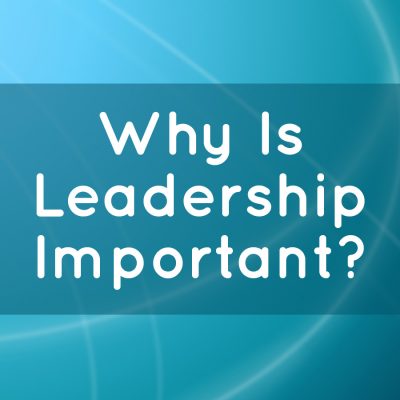
The "Master Mind" may be defined as: "Coordination of knowledge and effort, in a spirit of harmony, between two or more people, for the attainment of a definite purpose."
~ Napoleon Hill, Think and Grow Rich
Napoleon Hill was one of the first to write about the “master mind alliance”. He is often accredited with the idea, but he attributed it to Andrew Carnegie, who undoubtedly learned it from someone before him. Here is the chapter from his book Think and Grow Rich that describes the mastermind alliance, if you have not already read it. It is worth reading to understand the spirit of intent that is at the foundation of a well-done mastermind alliance.
Mastermind groups rise and fall. Some last with a core group of members for years, even decades. Others begin with great passion and fizzle out over the course of a few weeks or months. Mastermind groups sometimes achieve little success and sometimes achieve great success for the members.
What Makes the Difference?
There are some principles, processes, and agreements that increase the chance of a mastermind group being successful. Building a mastermind group on a solid foundation that uses a holistic approach (an approach that takes into account all of the moving pieces as separate but important parts with a focus on the whole rather than a linear approach with a narrow focus). Clear and effective leadership. An intentional facilitation process that takes into account adult learning needs and invites the whole person (and therefore collective wisdom) into the room.
We believe that one way to approach developing mastermind groups in this way is to create mentoring circles. Developing a mentoring circle within your organization is a powerful opportunity to increase the capacity of the members of the organization and the organization as a whole. By bringing together people from across the organization with a focus on creating a maximum mixture of levels of seniority and different departments into a group for collective mentoring, the opportunity is created to foster relationships, increase knowledge transfer, and build collaboration and collective wisdom while working on achieving business goals and solving problems.
Mentoring in this instance is a verb, not a noun. The verb denotes action between the persons involved, assisting each other with knowledge, support, confidence-boosting, great questions, challenges, and opportunities.
Creating the Conditions for Success with Mentoring Circles
Key considerations when developing a mentoring circle include:
- A Collective Purpose: developed by the leadership of the mentoring circle, it is important for all participants to have a clear purpose around which to come together. Keeping this purpose in mind helps to keep the group on topic and moving forward in a clear direction together.
- Clear Leadership: In getting the mentoring circle started and sustaining the momentum between mentoring meetings, leadership is necessary from a person or a team of persons willing to undertake this development process. In the meetings, shared leadership amongst all participants is encouraged.
- A Shared Vision: When the collective purpose is being achieved, what does the vision of success look like? Are there specific business goals being worked towards? Soft skills like relationship building, engagement, or collaboration? Whatever the shared vision is, it is critical to the long-term success of the group that the collective vision is agreed upon from the outset. This gives all members a clear picture of what they are working together towards.
- Getting The Right People In the Room: Gathering together a team of people from different departments in the organization, who have different levels of seniority and experience, different education or areas of focus, and different ages, genders, and cultures to create a maximum mixture offers the opportunity for thinking outside the box, creative problem-solving, and enhanced relationship building.
- Explicit Rules of Engagement: What are the givens within which this mentoring circle operates? What are the operating procedures? Consider confidentiality, scheduling, meeting facilitation and agenda creation, how people become members of the mentoring circle or leave the group when circumstances call for it.
Inviting the Whole Person
For the mentoring circle to flourish, it is important to remember that each of the participants is a whole person with a whole life, gaining meaningful experience in their personal and professional activities outside of your monthly meetings. Using a participatory meeting structure like Whole Person Process Facilitation creates a structure that invites all of this wisdom into the mentoring circle (learn more). When you honor the needs of the individual in this way, you maximize their learning opportunities and in turn, maximize the success of the mentoring circle.
Mentoring Circle Success
Whether you are building your own mentoring circle or considering joining another, taking the time to ensure these principles are in place offers a framework in which the mentoring circle has the best possible chances of being successful, and in turn offering you new levels of business success.
Want this information (in greater detail) to take to your mentoring group? Download it here.
Applying to Your Business
Here are some ways to apply today's learning to your business:
Organizations & Communities: Create a mentoring circle that draws from a maximum mixture of people within your organization or community. Consider carefully the purpose of your mentoring circle; is it focused on achieving a specific business goal? wisdom and knowledge sharing within the organization? ongoing opportunities for exploring opportunities and collaborative problem-solving?
Teams and Projects: Whether it's a new team or project or something that is longstanding, consider creating a mentoring circle unique to your group. As you develop your maximum mixture of participants, consider inviting those from other teams or projects who may have transferable skills and wisdom to share and learn.
Small Business: With a small number of colleagues to draw from (maybe it's only you!), consider forming a mentoring circle with other small business owners or those passionate about helping small business succeed. As you invite others to join you, look for people who have different kinds of experience, a variety of skills and education, or come from different industries. These differences will help you to create a maximum mixture of people with whom to mastermind.
Consultants and Coaches: Participating in a mentoring circle with other consultants and coaches can support you in developing new skills and capacities to grow your business and better serve your clients. Consider starting a local mentoring circle with consultants and coaches you admire in your area. Or join an online mentoring circle like the international mentoring circle for the Genuine Contact program.
Photo Credit: Nick Youngson











Leave a Reply
You must be logged in to post a comment.